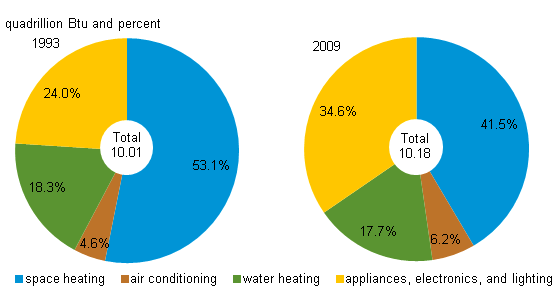DOE will fund 12 projects to develop energy efficiency building technologies including open source software to monitor and adjust energy use.
On August 14, 2013, The Department of Energy (DOE) announced 12 projects to enhance energy savings in residential and commercial buildings. DOE’s approximately $11 million investment will pair with $1 million private sector funding to improve heating, cooling, and insulation technologies and develop energy efficiency software aimed to increase energy savings and curb greenhouse gas (GHG) emissions.
Nine of the projects will receive approximately $6 million to develop technologies to improve heating, ventilation, air conditioning (HVAC), and insulation. Among the innovative technologies, the projects will develop affordable plastic film insulation for windows, improve efficiency of residential HVAC system cycle, and commercialize natural gas heat pump in buildings. The projects will also address hydrofluorocarbon (HFC) emissions, which currently constitute 1.5 percent of GHG emissions, and are projected to double by 2020.
Three of the projects will receive approximately $5 million to develop open source software that will enable building users to measure and monitor energy use and make appropriate adjustments to save energy while retaining optimal performance. DOE cited a Pacific Northwest National Laboratory study, which found that installation of energy control systems in commercial buildings could save an average of 38 percent on energy bills.
According to DOE, commercial and residential buildings represent approximately 40 percent of total energy consumption and more than 40 percent of GHG emissions in the U.S. Energy Information Administration data shows that heating and cooling accounted for 48 percent of residential energy usage in 2009, a decline from 53 percent in 1993, attributable to energy efficiency improvements. The new projects aim to further reduce heating and cooling energy use.




